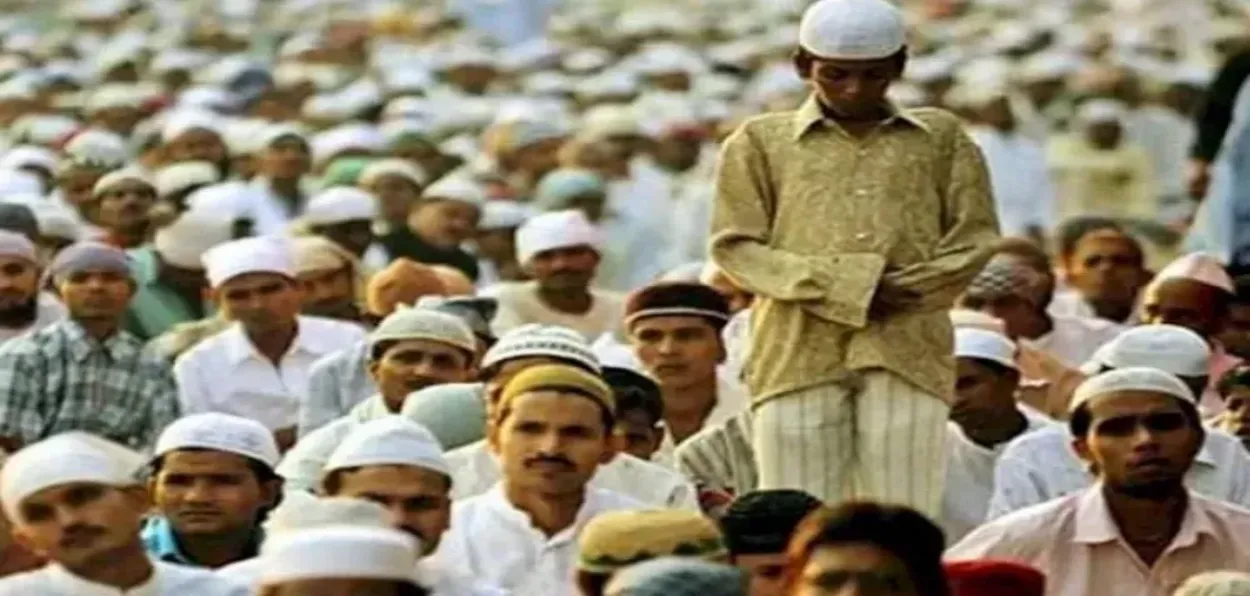
Abdullah Mansoor
Pasmanda is a Persian language word meaning "those left behind," and in today’s context refers to Muslims belonging to the Shudra (backward) and Ati Shudra (downtrodden) castes. The word backward is currently associated with social and economic backwardness. The backward movement emerged after the Mandal movement (the 1990s) as a response to the discrimination and marginalization faced by the backward castes within the Muslim community.
This movement aims to awaken the backward Muslim community of Indian origin against the domination and conspiracy of its strong political, social, and cultural rival elite coreligionists by awakening them to their rights and duties in the democratic system and the constitution, the movement seeks to develop their educational, social, economic, political, scientific and cultural development.
Muslims came to India in three phases for different purposes. The Arab traders were the first to reach the shores of South India. Thereafter came the Arab invaders, who conquered Sindh and annexed it to the empire. In the third phase, the Turks invaded North India. At that time, the Muslim community in India was very self-conscious and had a sense of pride towards its descendants. They viewed Indian Muslims with hatred, while the conversion of lower-caste Hindus to Islam did not improve their social status or end the practice of untouchability. There was a cultural gap between the elite and backward classes. The culture was monopolized by the upper classes and through their cultural supremacy they maintained their hegemony.
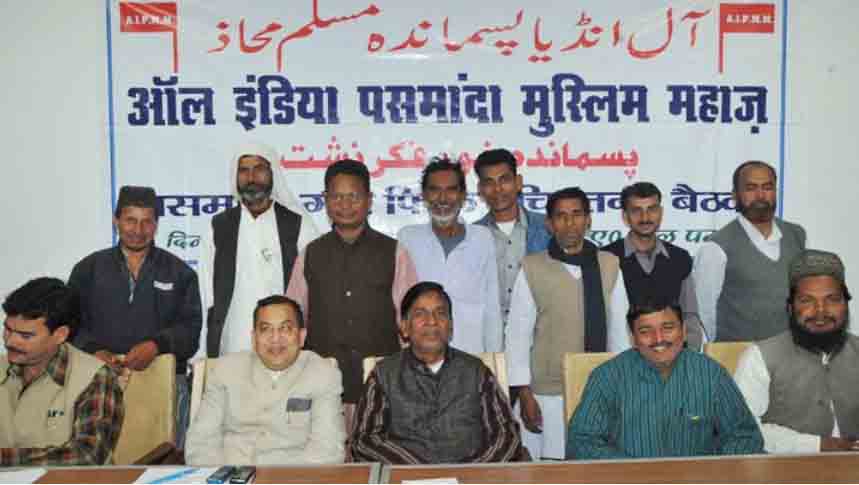
Pasmanda activists speaking to the mediapersons
Always there was a difference in speech, dress, food, lifestyle, and behavior between the elite and the backward class. The Muslim community never existed as a unit, but was divided into different classes and castes along the social and economic grounds. As long as India was ruled by the Ashraaf they never tried to assimilate the backward castes. The so-called Pasmanda celebrated their rituals and customs openly and hence were eyed for conversions. The categories among Indian Muslims were determined by their profession and these were Ashraaf (aristocrats) Ajlaaf and Arzal.
Ashraf are Muslims of foreign origin like Sheikh, Syed, Mirza/Mughal, Pathan, etc. Ajlaf is castes converted from non-Soran castes of Indian origin such as Jolaha, Mansuri, Raain, Gadi, etc while Arzal (meaning lowly), includes castes such as Nut, Halal Khor, Dhobi, etc. The last category constitutes at least 85 percent of the total population of Indian Muslims.
Pre-Independence era
The British government introduced some political and social reforms in India that created anxiety among the upper castes. They were worried that if democracy came to India, those who had more numbers would rule. At first, the elite intellectuals opposed democracy. As it didn’t work, there was talk of including the backward castes in the Muslim community to prove their dominance in numbers over the Hindus. In this case, too, the elite treated nothing more than mere numbers; the social distance remained unchanged.
Sir Syed slandered the revolutionaries of 1857 as 'badzat Julahe' (a caste slur) and barred backward Muslims from modern education, while Allama Iqbal continued to oppose democracy because, according to him, it would emphasize the identity of those who were ruled by elites. Historian Mubarak Ali writes in his book Ithas Ka Matantar' that the 'Muslim elite' (Ashraaf) pressured the British to maintain their influence and prestige. The UP elite appealed in the name of 'Muslim representation' and told the government that as the founders of the country, they still had influence over the provinces and were therefore more important than the numerical majority.
They wanted the family lineage to be given importance. Iqbal expressed this feeling in his Allahabad address where he said that Western democracy cannot function in this country. Anti-democratic ideas are also evident in his poetry. (As democracy is a form of government in which the people are counted, not weighed) This reflects the mentality of the Muslim elite, whereby this class maintains its social status by not mixing with the common man. They wanted its supremacy to be preserved.
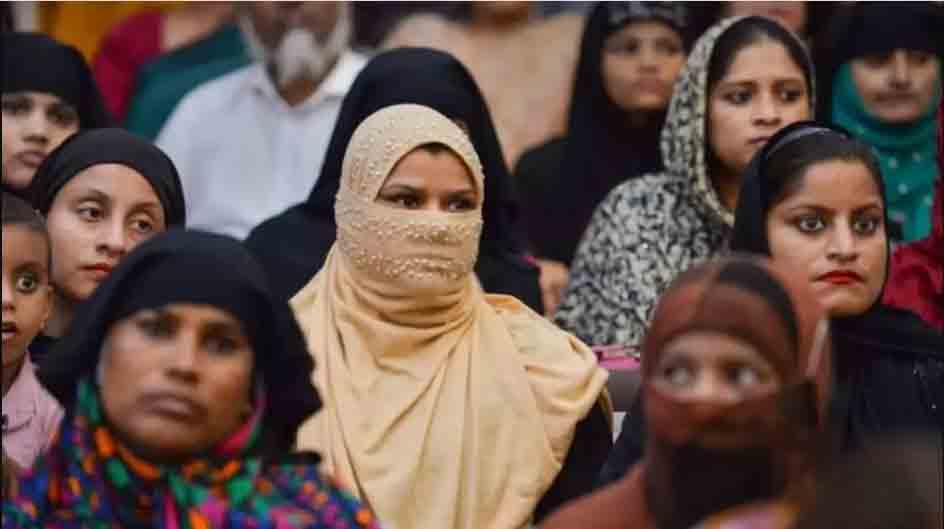
Muslim Women
The backward movement emerged from these circumstances. As caste consciousness grew, some castes began to unite against oppression. Jamiat-ul-Ra'een led by Abdul Samad and Abdul Latif, Jamiat al-Quraish led by Bhaiyaji Rashiduddin, etc. were the prominent ones. The Momin Conference came out with the loudest voice and stood firm against Jinnah’s Muslim League.
The word Muslim and Momin (believer of Islam) are synonymous, but here Momin refers to Pasmanda while Muslim to the elite. Maulana Ali Hussain, the founder of the Momin Conference, was against the two-nation ideology of the Muslim League.
Its leader Abdul Qayoom Ansari openly supported the Congress against Jinnah's "two nations" and merged his organization with the Congress. To the Muslim League's slogan 'Muslim Hai To League Mein Aa, Pakistan means la ilaha ila Allah', (If you are a Muslim join the Muslim League, Pakistan means the Supremacy of Prophet Mohammad) Abdul Qayyum Ansari countered it by saying, 'wherever the Momin (weavers, Ansari, etc) live, it’s their Pakistan (the land of the Pure).”
Backward Muslims continued to chant Gandhiji's songs even after independence and remained bonded to the Congress party. However, after the caste debate triggered by the Mandal movement, the slogan changed to 'Jiski Jitni Sankhya bhari, Aise Atni Bhagidari' (One who has the numbers also has an equivalent share in democratic power).
These slogans raised in the name of social justice by Hindus impacted the Muslims. The inclusion of backward Muslims in OBCs by the Mandal Commission gave a new dimension to the ongoing caste struggle of Muslims. Meanwhile people like Shabbir Ansari who formed the Maharashtra State Muslim OBC Organization (later All India Muslim OBC Organization), and Iqbal Painter, a resident of the Beed district of Maharashtra, the Muslim Bhatke Vamkat Jamat" strengthened the Pasmanda movement.
Momin Conference had an impact in Bihar. Dr. Ijaz Ali founded the Backward Muslim Front in 1994. The word 'Dalit Muslim' came into the limelight and a discussion on Article 341 started. Dr. Ijaz Ali launched several movements for reservations for Dalit Muslims. Later, he changed the name of his organization from Backward Muslim Morcha to United Muslim Morcha. In 1998, Ali Anwar formed 'Pasmanda Muslim Mahaz.'
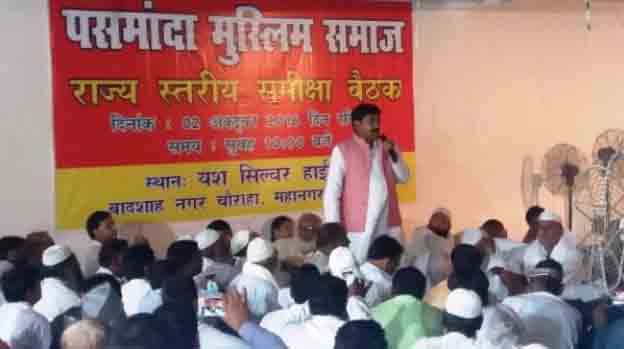
A meeting of the Pasmanda Samaj
For the first time since independence, a Prime Minister (Narendra Modi) has spoken about social justice among Muslims. His use of the word Pasmanda sparked a new debate in Indian politics. A statement by Prime Minister Modi has shaken Muslim politics which was elitist politics. The Muslim elite politics is all about Babri Masjid, Hijab, Urdu, Talaq, Aligarh Muslim University, Personal Law, etc. Now the narrative of Muslim politics will revolve around the issues of livelihood, health, education, representation, reservation, and housing of the backward society.
Caste system of Muslims
The caste system in Muslims is not like Hindu society. Let’s understand that the caste system came into existence due to 'social exclusion', that is, each caste has a specific position in the caste system in which all rights and resources exist, and with the upper strata, those at the lower ladders have to shoulder responsibilities. Social exclusion is a social situation in which a person, group, caste, or community is excluded from the mainstream of society through a planned process.
In the Caste system of Muslim society, a section – a smaller one in terms of population - has all the rights and resources while the majority castes are effectively excluded from the sphere of power, knowledge, and wealth. Many castes have their cemeteries where Dalit Muslims are also barred; untouchability against Dalit Muslims is practiced in some areas. Ansar Ahmad (Halal Khor) says that he was not even allowed to perform ablution in the mosque.
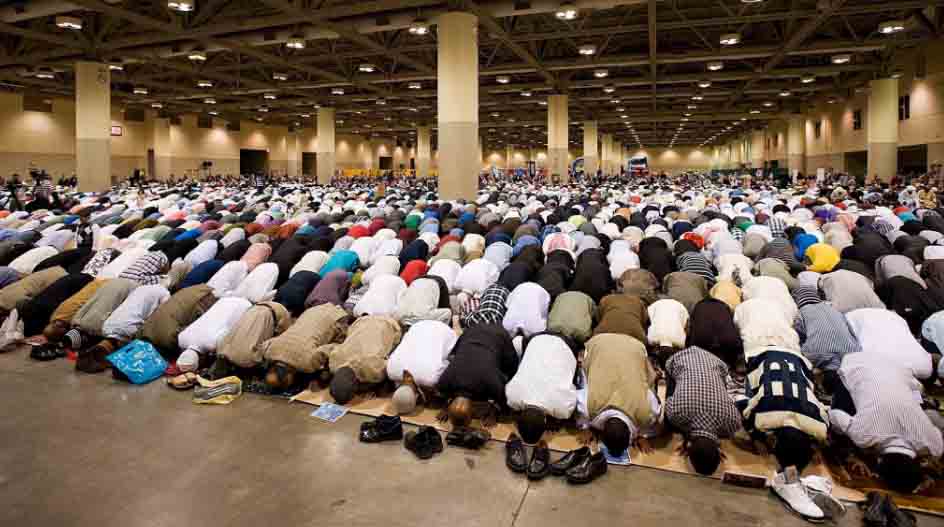
Muslims praying
In the village of Fatanpur of Sarai Mir, the washermen community was prevented from offering prayers in the mosque built by the elites. Tired of this ban, the washermen built their mosque. Waqar Ahmed Hawari (washer) of this village says that he has been to temples many times but never to this elite mosque which is called 'Mian Ki Masjid'.
Social structure varies from South India to North India, yet Dalit Muslims are marginalized everywhere in terms of social exclusion. Examples of some well-known backward castes are Lal Begi, Halal Khor, Mochi, Pasi, Bhant, Bhattiara, Panuria, Nat, Bukho, Daphali, Nalband, Dhobi, Sai, Rangriz, Chak, Merishkar and Darzi. Simply put, backward Muslims (shudras) and dalits (atishudras) converted to Islam centuries ago to free themselves from caste oppression, but the conversion did not free them from caste discrimination and material deprivation.
Many times the backward castes have changed themselves instead of waiting others to change their attitudes. They changed their caste name and assumed Arab names in the hope of getting recognition and being treated equally.
For decades, Pasmanda has been making the following demands to elevate their status and help them become part of the mainstream:
ALSO READ: Pasmanda Muslim are harmed by Muslim discourse: Dr. Faiyaz Ahmad Fyzie
Besides, the backward society also opposes the reservation given to the entire Muslim population based on religion, as it benefits most of the population.
(Abdullah Mansoor is an educationis, author Pasmanda activist and the owner of YouTube channel Pasmanda Democracy)
